‘It Was The Best Case Scenario’ – Pianist Mark Lowrey Talks Working With Seven And Creating ‘Dyin’ Flyin” [SM Exclusive]
May 11 2015
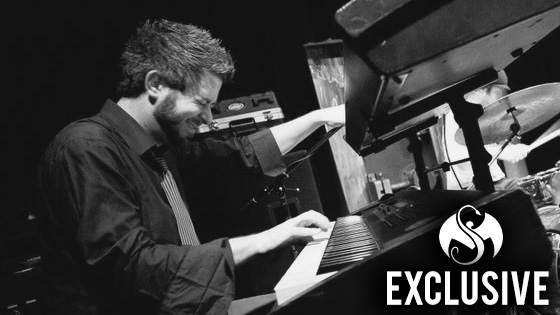
One of the biggest breakthroughs for the production on Tech N9ne’s huge, seminal album Special Effects, was due to producer Seven’s utilization of premier musicians in the area. Enter Mark Lowrey, the Kansas City-pianist, whose dexterity and talent made songs like “Dyin’ Flyin'” possible.
Unlike most rap songs that utilize classical music and rely on being sample-based, “Dyin’ Flyin'” sounds like it should be performed in a music hall. With the incredible musicianship and bombast that you’d expect from a Beethoven symphonic performance, “Dyin’ Flyin'” is a new creation in the world of rap, and is unlike anything audiences have ever heard before.
We talked to Mark Lowrey to find out how the song was created, what it was like to work with Seven, and whether he’d be open to more Lowrey-Seven collaborations in the future.
Tell us about yourself. You’re pretty reputable in Kansas City as far as a pianist and within the jazz scene. Were your parents musicians?
Well, actually, I came from a pretty non-musical family. My older sister took lessons and I started, I guess, when she was practicing for her lesson. She would go off to cheerleading practice, or whatever, and I would just sit down at the piano and I would try to play what she was practicing, just with my ears. I thought I was going to get in trouble for doing it. My mom came in the room and I thought it was my sister. Anyway, they put me in lessons after that and I’ve always been an ear player. I used to always try to figure out how to play theme songs from TV shows or whatever Bell Biv Devoe song was on the radio back then, you know?
I had formal education with like, the old lady in the neighborhood, but I was always interested in developing my ear, writing, and improvising. In high school, I got a little more serious about it and was in a few jam bands and I felt like I outgrew that as I was really starting to understand a deep love for American jazz music, which is my main, artistic calm, I think. Basically, I made business cards and started going to the Blue Room at 18th and Vine district and the Foundation, meeting people and starting bands.
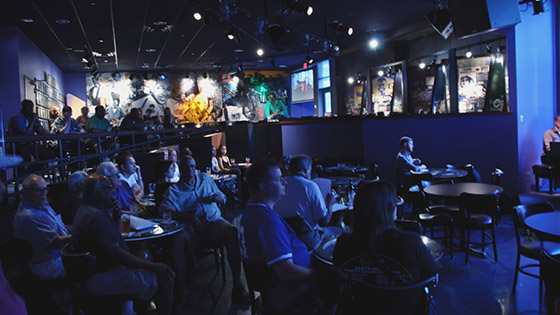
I was able to quit my last “jobby” job right after 9/11 in 2001 and basically, since then, I’ve been doing a lot of jazz, but I’ve also done some theatrical stuff and some cabaret shows. I did a few tribute shows. I did an interpretive tribute to Radiohead. I’ve played in a lot of salsa bands, I’ve studied Afro-Cuban music quite a bit, that’s one of my main things.
Then, about six or seven years ago, I got really interested in freestyle hip hop and did this series called Mark Lowrey vs. Hip Hop with a lot of the local emcees in Kansas City that are improvisers. We had some really fun collaboration with the different styles of improvisation. That was pretty much my first, professional experience working with hip hop and rap.
Right now, I have a trio which is one of my main things: it’s piano, bass, and drums. The Mark Lowrey Trio is like a modern jazz thing. We do originals and we take more modern tunes and put them in the context of jazz improvisation. Now, the big thing I’m doing, that I started this year, is I’ve got an Afro-Cuban quartet. It’s piano, bass, drums, and conga bongo. It’s called La Fonda All-Stars. I guess that’s pretty much my short story.
How did you link-up with Seven? That’s obviously the bridge between you and doing stuff for Strange Music. Did he reach out to you?
Well, yeah, I actually don’t remember how he got my number, but you might ask him that. But, yeah, he just emailed me and said that he was interested in working on some stuff. The first thing we worked on, the “Dyin’ Flyin'” track, is probably my favorite collaboration with him. We just viewed it as so in-depth. After that it was really time to go back and play on two other tracks. I even got to do the piano on the “Axiom” track for CES Cru’s latest release.
What’s it like to work with him? Did you guys vibe-out pretty well?
Yeah. You know, in my career I’ve written jingles for Hallmark and I’ve worked with a lot of people that are outside of, what would you say, like western theory academia and working with different kinds of producers that speak their own musical language or speak a different language. Often times that can be really difficult and frustrating, but with Seven, he was able to speak abstractly in a way so that I understand, if not on the first pass then on the second pass every time. He’s a creative thinker and he uses metaphors, and he uses adjectives that are very…synesthesia, if you will, to demonstrate what he’s looking for in a particular cut, or to split the mood, and so on.
Do you remember any of those particular phrases? Synesthesia is something I’ve always found pretty fascinating. Is that something you experience?
Not directly. I’m familiar with it. I play with a couple dudes that claim to have it. I can’t claim that I’ve had it when I’m sober (laughs). I’m trying to remember some really particular things. In “Dyin’ Flyin'” we’re talking about a gothic, classical sound that’s ominous. Anyhow, I wish I could remember some more of the key phrases. He was firing stuff out left and right while we were recording.
You were saying “Dyin’ Flyin'” is your favorite one. As far as musicality goes and how that coexists with the hip hop track, that’s my favorite one as well. I seems that the way the song plays, you would think that the drums were there already, and you were able to play along with them the whole time.
I’m still mystified as to he took tracks – even off of the click track – how he took those big, solo piano legos, if you will, and was able to move this really tight…and is it after the third verse that it’s a really, super-nasty gangster rap beat with the high hat? [demonstrates rhythm] For the looseness and the sort-of classical bravado nature of the stuff that we recorded, I think it really, doesn’t juxtapose, but surprisingly fits into that sort-of really, super-tight, lock-in rhythm that Tech’s stuff and his production is kind of know for.
Yeah. When you heard it, were you like, “What the hell?” I guess that’s a testament to Seven’s ability to take that stuff and make it work.
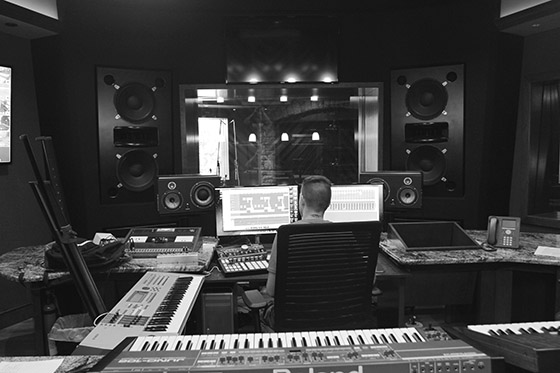
My emotional reaction to it, generally was, I did not expect this to be as artful and detailed as it was. I’m not speaking to any predisposition towards anybody’s work, it’s just that what came out was the best case scenario for what I laid down. It seemed like it really, seamlessly matched together.
Wow, it’s great. Honestly, I’ve never heard a case of classical and those kind of elements coexisting with hip hop and it feeling it so natural. It works together really well. There’s been times when people sample classical and it works, and it’s cool, but this one just seems like an entire package and everything was made with the other parts in mind.
It’s not necessarily a backwards approach, but definitely a unique one.
Take us through what happened. I guess you guys went to The Majestic, right? Just take us through that process.
We were looking for a piano that wasn’t studio-perfect. That’s great for a lot of stuff, on my solo piano records, I like it to sound like a nine foot Steinway. But sometimes if you’re doing some creepy Castlevania-kind of shit, it’s nice if the piano is a little creaky and not one-hundred-percent in tune.
The piano at the Majestic, I play there every week with my trio. It’s a really comfortable space. Not to sound like too much of a hippie, but I think there’s good energy in the place, a lot of history, and the Cigar club upstairs is where all the K.C. mob bosses used to meet, in The Pendergast Club. There’s these old booze-running tunnels that are cinder-blocked up in the basement, from prohibition.
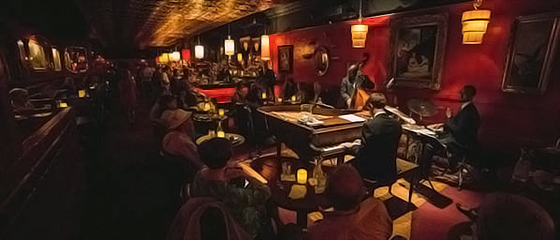
If I remember, I think Seven told Tech about the sort-of mythology of this place, or the history and he liked that idea on the off-chance that there might be some of that sort of energy in it. But anyway, they just put a whole bunch of real expensive mics on us and this old piano. We just did it in the middle of the day. Seven would just, sort of coach, “Let’s do it again, a little more like this.” He was really lenient in, say, giving directions. They were truly suggestions. When he gave you these descriptive words and would say “try this,” or “a little,” or “a lot.” We just laid down a bunch of stuff.
Me and Seven were also talking about some ideas to use the piano more fully, and you’ve really got to listen close for it, but he recorded a whole lot of me plucking the strings. Like me crawling inside the piano and plucking them or scratching them. Well, it’s like me playing a note while sliding over the string with a shot glass. And there’s a lot of the metallic, creepy shit that’s just really subtly placed in these little pockets, inside the songs. That was super fun recording, just creepy sound effects on piano strings.
Did it feel like, then, that he gave you direction, but still utilized you, your talents, and what you bring to the table?
Yeah, yeah. I felt, very much, that way. I think after a certain level of musicianship, if you’re trying to make music that is real, you shouldn’t be asking someone to be somebody they’re not, or not put part of their identity into it. It’s a different thing if you’re just a studio musician in L.A., doing this for the Weather Channel, than doing this for, you know, whoever in the next half-hour. I think that Seven seems to understand, from my experience, that you’ll probably get a better product from letting somebody be themselves.
Yeah, for sure. Otherwise you could just get anyone to play whatever exact notes he has.
Yeah, they already have robots for that, I think.
You said what you thought of “Dyin’ Flyin'”, that it was the best possible outcome. I take it, you would be pretty open to working with Seven in the future, if he ever needs you?
Yeah, for sure. I’ve done a lot of recording in a lot of different styles of music, but I’ve never been involved in a process like this and it was really, really exciting, and a lot of fun, to be able to just jump into something new.
Being a Kansas City musician, I’m sure you’ve heard of Tech N9ne. Have you ever listened to his music?
Yeah, yeah. My little brother was a bigger fan than me. It took me a minute to get back around to hip hop and modern R&B. But I’ve been familiar with a lot of his stuff, over the years. Back when Jardine’s, this jazz club on the Plaza, was open, one time Tech came in and he heard the last half of a set that I was doing with this experimental project. It was sort of like a musical A.D.D. thing with a drum set. I played like, five different keyboards, there was a guy that did a lot of effects on the Chaos pad. Basically free-jazz where we jump into different grooves, like Latin, or hip hop, or something. I started talking to him after that, and I don’t know if he even remembers, we took about six shots, each, in a short amount of time. But, we talked about doing some kind of collaboration. He was talking about getting excited about doing some more freestyle stuff. He was like, “Yeah, we’re going to work together,” and then, you know, I heard nothing for years. Then Seven called me. I don’t know if that has to do with anything, but I just never know with anything. I just met him that one time at Jardine’s.
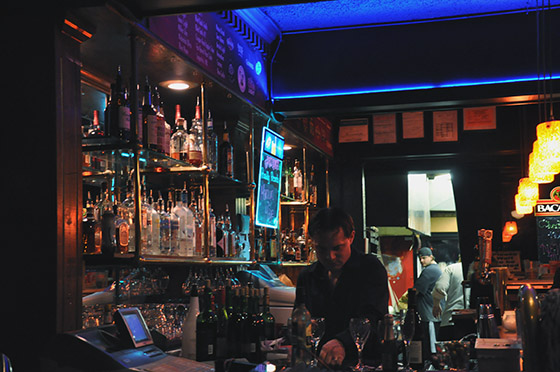
What are the musical qualities that you recognize in what he does? I guess, basically, what do you think about his rapping and what he does as an artist?
I don’t have a whole lot of commentary on his lyrical content, basically, because I’ve never been someone to gravitate towards lyrics. From a very young age, when I heard music, even with vocals, I heard the sound of their voices and I saw the notes they were playing. So, lyrics isn’t the first thing that I gravitate to, so I hear his voice more as a musical instrument. The obvious virtue in the style is machine-gun like precision, and the speed and athleticism, which I think is pretty bad-ass.
All the pieces are coming together for Special Effects to be a pretty huge milestone for Tech’s career. What does it feel like to be a part of that?
The potential energy is pretty exciting. I’ve never been part of a product of this scale. I’m a jazz musician, I love what I do. But, unless you’re Robert Glasper, it doesn’t have the capability of reaching the masses that a lot of other styles of music do. It’s pretty exciting. I hope I get to work with the label more on stuff like this.
You kind of told us where you play around the city, but where can people check you out around K.C. if they want to come see you?
The new band is called La Fonda All-Stars. It’s the name of their family restaurant on the boulevard. We actually rehearse there on Sunday afternoons.
You can check out my website, which is not super-updated right now, but it’s marklowreymusic.com.I play at the Majestic, I play at the Phoenix. If you’re following me on Facebook, I usually do most of my updates from my Facebook fan page.
CLICK HERE TO PURCHASE
SPECIAL EFFECTS (DELUXE EDITION) ON iTUNES!

